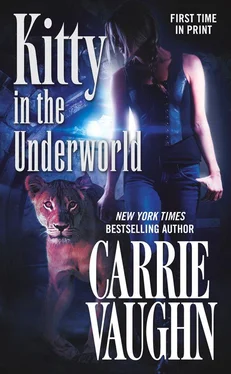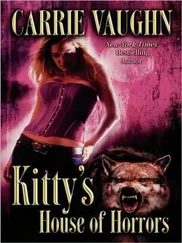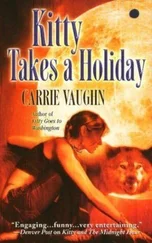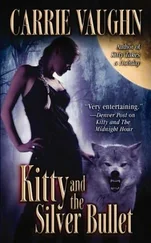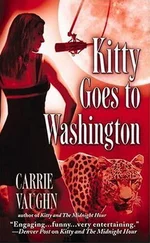Enkidu was the reason this was one of my favorite stories. He was a wild man who lived in the mountains, clothed in fur like one of the beasts, drinking with them at the water holes, and generally representing all that was natural and uncivilized about humanity. He also had a habit of rescuing animals and sabotaging hunters’ traps, so one of the hunters brought a temple prostitute into the mountains to seduce Enkidu and lure him into civilization. That’s right—sex soothed the savage beast. She also taught him about language and clothing, and brought him to the city, hoping that he could stop Gilgamesh’s dominance. As expected, Gilgamesh and Enkidu fought, and then, seeing in the other a true equal, became fast friends. Maybe even lovers, depending on the interpretation you agreed with. They went off and had many fine adventures, battling monsters, hunting for treasure, angering the gods, all that good stuff.
The Epic of Gilgamesh does not end well. Another common trait of epics. There’s a price for all that glory, and it’s usually loss. Heartbreaking, unendurable loss. Enkidu dies a slow, terrible death, not in battle, but by the whim of the gods. Gilgamesh is inconsolable. I wonder if this says something about civilization in opposition to humanity’s wild roots: the wild cannot survive. If I were to take the analysis further, from a purely literary, symbolic standpoint, I’d say that lycanthropy isn’t a curse—it’s a reminder of what humanity used to be. Of what we lost. We used to be able to talk to wolves. And now we fear them as monsters or worship them as paragons.
Enkidu’s strength came from the opposite source of Gilgamesh’s strength—one was wild and the other was a king, one preferred mountains and the other preferred cities. But the world needed both to be in balance. Together, they were unstoppable. The metaphor was appealing to a werewolf like me.
Enkidu, if he had been a real person, must have been a Rex Luporum.
My friend TJ—one of the first werewolves I ever met, one of the ones who found me after the attack that infected me and helped bring me into the Denver pack, the one who held me and comforted me during my first full-moon night of Change—used to tell me that lycanthropy could be a strength, if I knew how to use it. If I accepted and controlled it rather than fought against it. This was hard to remember sometimes when I thought of all I had lost because of being a werewolf. When the full moon approached and blood lust rose up in me and I wanted to rip off my clothes, howl at the sky, and flee into wilderness, never to return. But I had gained so much by being a werewolf. My career, my life, my friends. My husband. It could be a strength. Wolves weren’t monsters—they were hunters, careful and intelligent. They stalked with great patience, and defended their packs with ferocity. That was the strength I chose. Enkidu’s strength. Enkidu, both man and beast, the first such being to cross from the wilderness and choose civilization over the wild. He did it, the stories said, for love. Or at least lust. Translations could be tricky sometimes. He was one of the characters from myth and legend I classified as maybe a werewolf, and I looked up to him.
Now I thought how dare this man, this kidnapper, call himself Enkidu. What did he know about the ancient hero? What made him think he could claim such a legacy for himself?
I fell asleep again. Sleep was easier, so while my mind was a shivering wreck, my body took over, and I curled up on the hard ground, rigid with tension.
When I heard voices, I wasn’t sure if they were real or if I was dreaming them. This whole situation felt dreamlike. The lines were starting to blur.
“We can’t keep tranking her,” said a male voice. Enkidu, I supposed I had to call him. He was on the other side of the door, a little way down the tunnel.
A woman whose voice was less familiar spoke. “How else can we control her until the spirit enters her?” She spoke quickly, nervously. The magician—had to be. Zora—Zoroaster. The hubris.
The frustration in Enkidu’s voice was plain. “And what if it doesn’t? She’s too strong to just give in to your … your brainwashing. That’s the whole point of recruiting her!”
“I need more time.”
“She will not wait quietly. She’ll find a way to break free, I tell you.”
“Which is why we have to use the tranquilizers—”
“Talk to her. If we could just explain—”
“No! Then she’ll never truly understand.”
I really was awake, I decided. I tried to focus, wishing I still had that sandwich. And the water. If I played along, I bet they’d feed me. I wondered when they’d think of bribing me with food. And I didn’t mean slaughtered rodents that would bring Wolf charging forward.
“This is ridiculous,” Enkidu muttered.
“You know what’s at stake,” the magician said. “If this doesn’t work, all is lost.”
The dynamic here was strange. The vampire was obviously the one in charge. But during the day, when he was asleep, who among his followers was leader? That seemed to be up for debate.
I didn’t want them tranquilizing me again. But I also didn’t want to just give in. My brain was starting to misfire over the dilemma. I was hungry, but even if I had food I didn’t think I’d be able to eat, I was so anxious. I might have whimpered a little.
“Regina Luporum is awake,” said the were-lion, Sakhmet.
They fell silent, listening. I imagined us, me on one side of the door, them on the other, listening close. Waiting for somebody to do something.
I called, “My name’s Kitty.”
“You see? She’s not ready,” hissed the magician, as if I couldn’t hear.
“We can’t wait forever,” Enkidu hissed back. “She has friends, and she’ll be missed.”
Damn straight. But if I could get out of here without dragging them into this mess, I’d do it. Just open that door …
I heard movement, and Sakhmet stepped close to the door—I could smell her. Inches from me now, she said, “Regina Luporum, are you hungry?”
“Kitty,” I murmured, on principle. I knew what this was—they’d keep calling me Regina Luporum until I answered. I wouldn’t play along.
But I really needed some water.
I backed away from the door. A bolt slid open, and the door pushed inward. I was a good girl and didn’t do anything crazy—all three of them were there, blocking the way out.
Sakhmet crouched and offered me a bottle of water. I took it and smiled a thanks. Probably drank it down a little too eagerly and with less dignity than I would have liked. Dignity, ha. These people had all seen me naked, who was I kidding? My hair itched. I scratched it back, trying to brush it out with my fingers as well as I could.
The three of them watched me apprehensively, waiting to see which way I would jump. So I didn’t jump. I sat quietly, clutching my bottle of water, and gazed up at them with big, harmless eyes.
“You shouldn’t be here talking to her like this,” Zora muttered at Enkidu. “You’ll ruin everything.” He glared at her, but didn’t argue. Even in the faint light, I could see the lines of indecision marking his face.
I focused on Sakhmet, who was closest to me, at my eye level, and regarding me with something like pity. She would talk to me, I bet.
“How did you all meet?” I asked softly, nonthreateningly. I was doing the show, trying to coax a story from a reluctant interview subject. Invite her to tell me her story, assume that she secretly wanted to tell me her story. Most people only needed a sympathetic ear to start talking about themselves. “You and Enkidu—you’ve known each other awhile, I can tell. How did you two meet?”
She didn’t talk, not right away, so I shrugged, played gee-whiz naïve. “It’s just you’re an interesting group of people, you know? People usually stick to their packs, but here you all are, working together.”
Читать дальше
